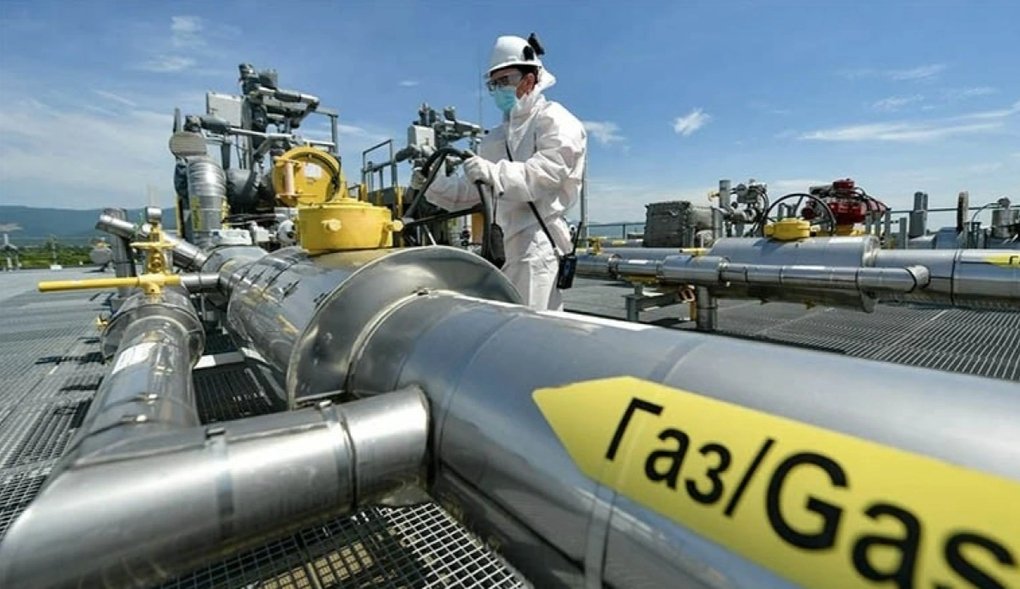(Dan Tri) – The European Union (EU) is preparing emergency plans to limit gas prices or separate electricity prices from rising gas costs, to solve the current energy crisis.
Gas prices in Europe are rising to record highs (Photo: Getty).
Energy ministers from EU member states met on September 9 to discuss different options to reduce the burden of record high energy prices on businesses and households.
Europe’s electricity costs have soared in 2021, as gas prices hit record highs as Russia restricted supplies to Europe.
European countries have accused Moscow of using energy for `blackmail`, in retaliation for Western support for Ukraine.
Changing the energy systems of the 27-nation EU could be complex and long-term, as cross-border trade in energy goods between members has taken two decades to establish and stabilize.
But policymakers are racing to find a short-term solution.
This is why Europe is looking at energy market reforms and what they can do to reduce record high energy costs.
Why are electricity prices linked to gas prices?
According to Reuters, in the EU energy system, electricity prices are set by the power plants responsible for meeting overall demand.
In Europe, wind farms, nuclear power plants, coal, gas and all other electricity producers participate in the electricity market.
The cheapest fuel sources top the EU energy system, followed by more expensive sources such as gas.
The reason is that because all generators sell electricity at the same price, plants that produce electricity from cheaper renewable energy will yield larger profit margins.
This is a stimulus for the greater investment in renewable electricity generation that Europe needs to meet its climate change goals.
However, countries like Spain say this system is unfair, because it leads to cheap renewable energy being sold to consumers at the expense of expensive fossil fuel-derived electricity.
Gas prices have skyrocketed as Russia cuts shipping volumes to Europe and amid fierce global competition for gas that is not just Russian.
Germany’s benchmark electricity contract for 2023 rose to a record high of 1,050 euros per megawatt hour at the end of August, 14 times the level a year ago, although prices have fallen somewhat.
Other factors driving up electricity prices include problems with French nuclear plants and a severe drought in Europe that has hampered hydropower output and affected coal supplies.
How can the EU change energy prices?
On September 7, President of the European Commission (EC) Ursula von der Leyen said that the EC will propose a revenue limit for power plants that do not run on gas.
Soaring electricity prices are helping non-gas generators with cheaper operating costs, such as wind farms and nuclear plants, to prosper.
The Commission’s draft proposal says the cap would be 200 euros per megawatt hour – less than half the current wholesale electricity price in Germany.
And solar farms, wind power, biomass power plants, nuclear power plants and coal generators will be among those affected.
Price caps will be imposed and excess revenues recovered once electricity bills are paid, so the measure will not directly affect prices on Europe’s electricity trading market,
The Czech Republic, which holds the EU’s rotating presidency, has also put forward options such as capping the price of gas imported from certain countries, and imposing a ceiling on the price of gas used to produce electricity
Any new EU policies or laws need to be approved by the countries in the union.
The idea of capping gas or electricity prices has long been supported by Spain, Belgium and other countries, and now also by initially reluctant countries such as Austria and Germany.
Ms. Leyen also said that the EC will propose a specific price ceiling for gas from Russia, a move aimed at cutting the revenue Moscow receives from fuel sales.
However, some countries are wary, saying this risks prompting Moscow to respond by completely stopping the dwindling supplies it has been sending to Europe.
Another option could be for governments to cap gas prices and pay gas companies the difference between the cap and the higher market price.
Countries such as Germany and the Netherlands have previously opposed it because they would have to subsidize fossil fuel production with public funds they argue would be better spent on the transition to energy.
The Czech proposals also include temporarily restricting heavy trading on European exchanges to intraday transactions.
High gas prices are causing industries and households to reduce gas consumption, a move that governments are trying to encourage to ensure there is enough fuel to get through the winter.
But imposing a gas price ceiling will make industries and households no longer have the motivation to save like they do now.
Analysts say the measure could even encourage more gas use while governments need to introduce policies to reduce consumption.
Some analysts say financial support for low-income households and businesses hardest hit by rising prices is a better solution than a hasty overhaul of the market.
Other questions are how governments can cap the price of gas-fired electricity without encouraging plants to produce less electricity when countries need it.
